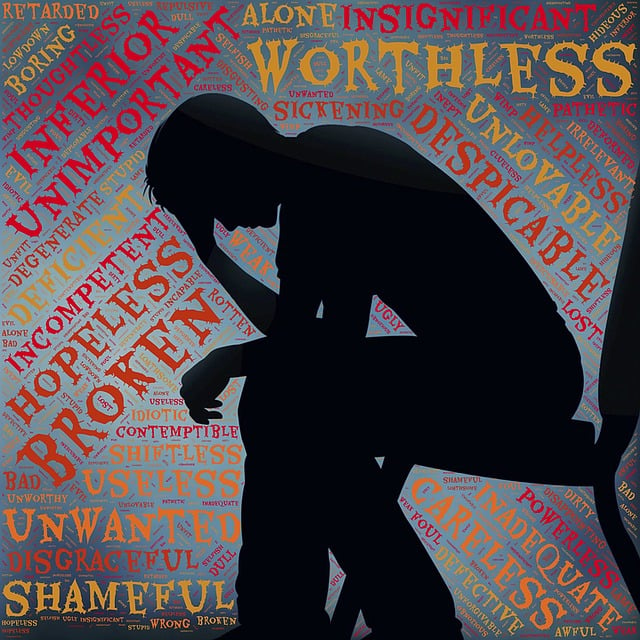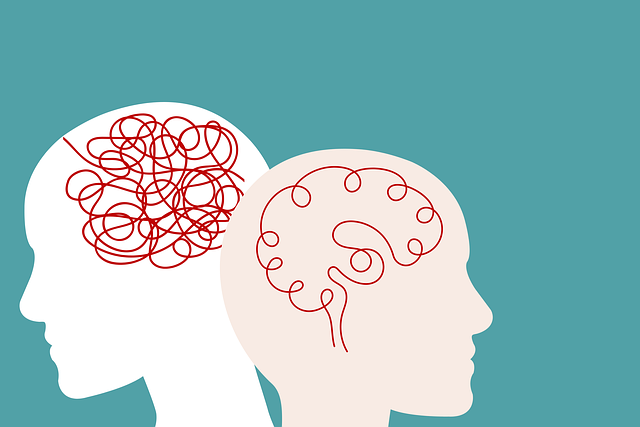The stigma around mental illness prevents many from accessing essential services like Littleton Terminal Illness Therapy. This arises from misconceptions, fear, and lack of understanding, fueled by media portrayals and inadequate education. To combat this, healthcare professionals should integrate emotional well-being promotion techniques and culturally sensitive practices into treatment plans, normalizing conversations about mental health. Community engagement through programs like workshops and seminars, as seen in Littleton Terminal Illness Therapy's initiatives, also plays a vital role in reducing stigma, fostering understanding, and encouraging early intervention, ultimately creating a supportive environment for therapy and recovery.
Stigma surrounding mental illness persists, hindering individuals from seeking essential therapy. This article delves into the multifaceted issue of mental illness stigma, exploring its causes and profound impact on affected individuals. We offer practical strategies for healthcare professionals to reduce stigma in clinical settings, emphasizing empathetic care. Furthermore, we highlight community engagement and education as powerful tools for fostering understanding and acceptance. By integrating these efforts, communities like Littleton can advance mental health support and ensure terminal illness therapy is accessible without the burden of stigma.
- Understanding Mental Illness Stigma: Causes and Impact
- Strategies for Reducing Stigma in Clinical Settings
- Community Engagement and Education: A Path to Change
Understanding Mental Illness Stigma: Causes and Impact

Stigma surrounding mental illness is a pervasive issue that can have severe consequences for individuals struggling with their psychological well-being. This social construct often arises from misconceptions, fear, and lack of understanding about mental health conditions. The impact is profound; it can isolate affected individuals, impede their access to necessary support systems such as Littleton terminal illness therapy, and even deter them from seeking professional help.
The causes of stigma are multifaceted. Media portrayal often perpetuates stereotypes, contributing to the marginalization of those with mental health challenges. Lack of mental health education further exacerbates the problem, leaving people uninformed about the realities of various conditions. Consequently, individuals may internalize these negative perceptions, impacting their self-esteem and leading to a cycle of avoidance or secrecy regarding their mental health struggles. Building mental health awareness, fostering resilience, and encouraging open dialogues are key strategies to combat this stigma, ultimately creating a more supportive environment for those seeking therapy and recovery.
Strategies for Reducing Stigma in Clinical Settings

In clinical settings, reducing mental illness stigma involves a multifaceted approach. One key strategy is to integrate Emotional Well-being Promotion Techniques into treatment plans. Healthcare professionals should actively engage in open conversations about mental health, using non-judgmental language and providing education on various conditions. This normalizes discussions around mental wellness, fostering an environment where patients feel comfortable seeking help without fear of discrimination.
Additionally, Cultural Sensitivity in Mental Healthcare Practice plays a pivotal role in stigma reduction. Recognizing and respecting diverse cultural beliefs and practices can significantly impact patient outcomes. Professionals should be trained to adapt their approaches, ensuring that therapy aligns with individual cultural contexts. This personalized care not only enhances the Emotional Healing Processes but also strengthens the therapeutic bond, making the experience more relatable and effective for patients from various backgrounds, including those who might benefit from services at Littleton Terminal Illness Therapy.
Community Engagement and Education: A Path to Change

Community engagement and education are powerful tools in the battle against mental illness stigma. By bringing people together, we can foster understanding and empathy, breaking down barriers that isolate those dealing with terminal illnesses like depression or anxiety. Littleton Terminal Illness Therapy has led successful initiatives focused on self-esteem improvement through community outreach program implementations. These programs design mental health education around relatable, real-life stories, helping to normalize conversations about mental health challenges.
Through workshops, seminars, and community gatherings, individuals gain insights into the experiences of others, reducing fear and judgment often associated with seeking therapy or acknowledging mental health concerns. This approach encourages open dialogue, promotes early intervention, and empowers individuals to take control of their well-being. By investing in these initiatives, we create a supportive environment where everyone feels equipped to support themselves and one another.
Stigma surrounding mental illness is a significant barrier to treatment and recovery, yet it can be reduced through concerted efforts in clinical settings and community engagement. By implementing evidence-based strategies, such as education programs and supportive environments, we can foster understanding and reduce discrimination. Encouraging open conversations about mental health, as seen in Littleton Terminal Illness Therapy initiatives, is crucial for creating a more inclusive society where individuals feel empowered to seek help without fear of judgment. Community involvement and continued advocacy are essential steps towards a stigma-free environment, ultimately improving access to care and enhancing the well-being of those affected.










